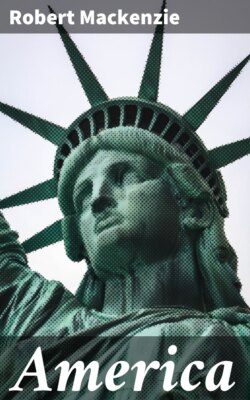Читать книгу America - Mackenzie Robert Shelton - Страница 13
На сайте Литреса книга снята с продажи.
CHAPTER VIII.
NEW YORK.
ОглавлениеDuring the first forty years of its existence, the great city which we call New York was a Dutch settlement, known among men as New Amsterdam. 1609 A.D. That region had been discovered for the Dutch East India Company by Henry Hudson, who was still in search, as Columbus had been, of a shorter route to the East. The Dutch have never displayed any aptitude for colonizing. But they were unsurpassed in mercantile discernment, and they set up trading stations with much judgment. Three or four years after the Pilgrims landed at Plymouth, the Dutch West India Company determined to enter into trading relations with the Indians along the line of the Hudson river. They sent out a few families, who planted themselves at the southern extremity of Manhattan Island. A wooden fort was built, around which clustered a few wooden houses—just as in Europe the baron’s castle arose and the huts of the baron’s dependants sheltered beside it. The Indians sold valuable furs for scanty payment in blankets, beads, muskets, and intoxicating drinks. The prudent Dutchmen grew rich, and were becoming numerous. 1643 A.D. But a fierce and prolonged war with the Indians broke out. The Dutch, having taken offence at something done by the savages, expressed their wrath by the massacre of an entire tribe. All the Indians of that region made common cause against the dangerous strangers. All the Dutch villages were burned down. Long Island became a desert. The Dutchmen were driven in to the southern tip of the island on which New York stands. They ran a palisade across the island in the line of what is now Wall Street. To-day, Wall Street is the scene of the largest monetary transactions ever known among men. The hot fever of speculation rages there incessantly, with a fury unknown elsewhere. But then, it was the line within which a disheartened and diminishing band of colonists strove to maintain themselves against a savage foe.
1645 A.D. The war came to an end as wars even then required to do. For twenty years the colony continued to nourish under the government of a sagacious Dutchman called Petrus Stuyvesant. Petrus had been a soldier, and had lost a leg in the wars. He was a brave and true-hearted man, but withal despotic. When his subjects petitioned for some part in the making of laws, he was astonished at their boldness. He took it upon him to inspect the merchants’ books. He persecuted the Lutherans and “the abominable sect of Quakers.”
It cannot be said that his government was faultless. The colony prospered under it, however, and a continued immigration from Europe increased its importance. But in the twentieth year, certain English ships of war sailed up the bay, and, without a word of explanation, anchored near the settlement. Governor Petrus was from home, but they sent for him, and he came with speed. He hastened to the fort and looked out into the bay. There lay the ships—grim, silent, ominously near. Appalled by the presence of his unexpected visitors, the Governor sent to ask wherefore they had come. His alarm was well founded; for Charles II. of England had presented to his brother James of York a vast stretch of territory, including the region which the Dutch had chosen for their settlement. It was not his to give, but that signified nothing either to Charles or to James. These ships had come to take possession in the Duke of York’s name. A good many of the colonists were English, and they were well pleased to be under their own Government. They would not fight. The Dutch remembered the Governor’s tyrannies, and they would not fight. Governor Petrus was prepared to fight single-handed. He had the twenty guns of the fort loaded, and was resolute to fire upon the ships. So at least he professed. But the inhabitants begged him, in mercy to them, to forbear; and he suffered himself to be led by two clergymen away from the loaded guns. It was alleged, to his disparagement, afterwards, that he had “allowed himself to be persuaded by ministers and other chicken-hearted persons.” Be that as it may, King Charles’s errand was done. The little town of fifteen hundred inhabitants, with all the neighbouring settlements, passed quietly under English rule. And the future Empire City was named New York, in honour of one of the meanest tyrants who ever disgraced the English throne. With the settlements on the Hudson there fell also into the hands of the English those of New Jersey, which the Dutch had conquered from the Swedes.
